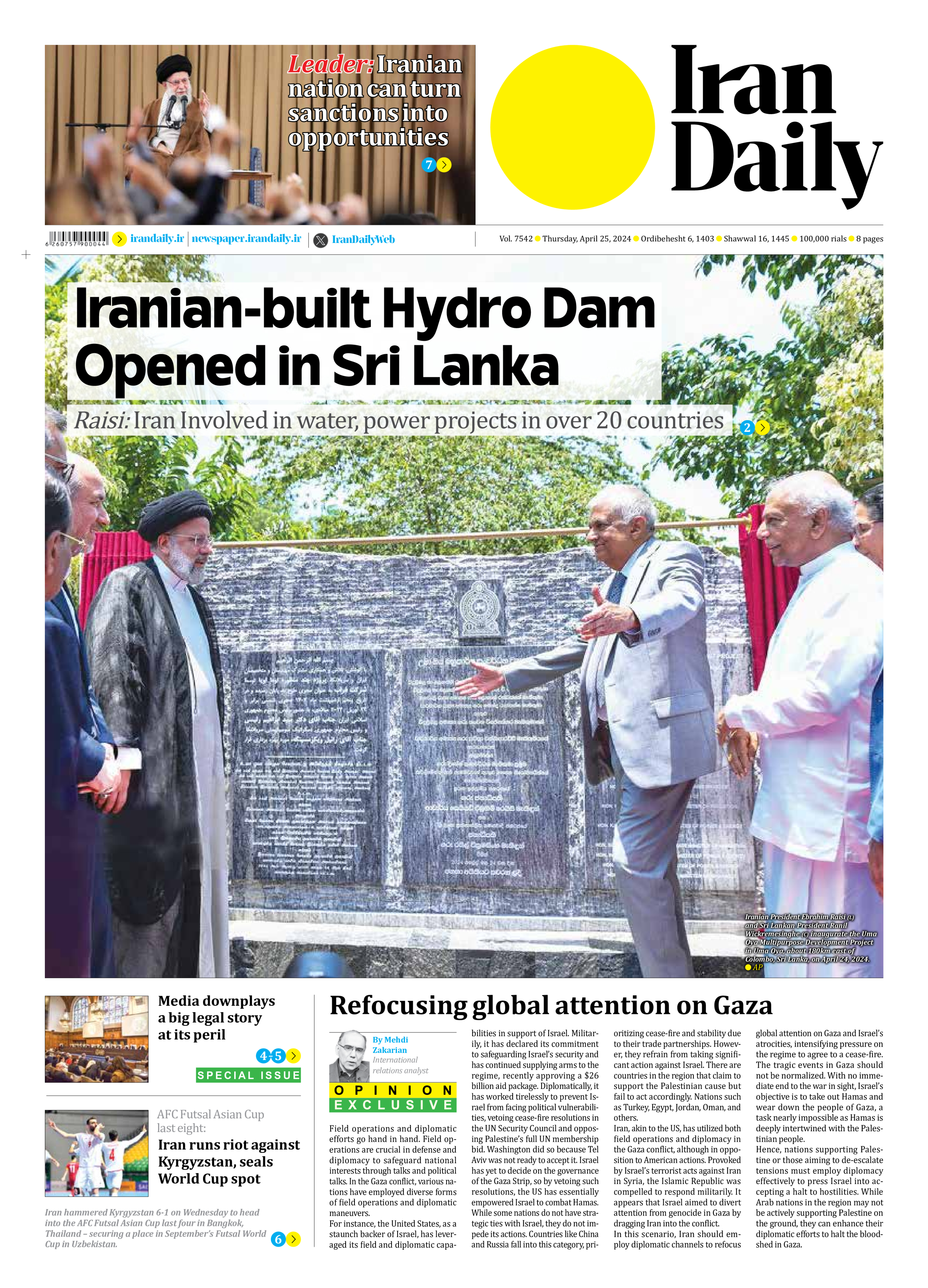
Refocusing global attention on Gaza
By Mehdi Zakarian
International relations analyst
Field operations and diplomatic efforts go hand in hand. Field operations are crucial in defense and diplomacy to safeguard national interests through talks and political talks. In the Gaza conflict, various nations have employed diverse forms of field operations and diplomatic maneuvers.
For instance, the United States, as a staunch backer of Israel, has leveraged its field and diplomatic capabilities in support of Israel. Militarily, it has declared its commitment to safeguarding Israel’s security and has continued supplying arms to the regime, recently approving a $26 billion aid package. Diplomatically, it has worked tirelessly to prevent Israel from facing political vulnerabilities, vetoing cease-fire resolutions in the UN Security Council and opposing Palestine’s full UN membership bid. Washington did so because Tel Aviv was not ready to accept it. Israel has yet to decide on the governance of the Gaza Strip, so by vetoing such resolutions, the US has essentially empowered Israel to combat Hamas.
While some nations do not have strategic ties with Israel, they do not impede its actions. Countries like China and Russia fall into this category, prioritizing cease-fire and stability due to their trade partnerships. However, they refrain from taking significant action against Israel. There are countries in the region that claim to support the Palestinian cause but fail to act accordingly. Nations such as Turkey, Egypt, Jordan, Oman, and others.
Iran, akin to the US, has utilized both field operations and diplomacy in the Gaza conflict, although in opposition to American actions. Provoked by Israel’s terrorist acts against Iran in Syria, the Islamic Republic was compelled to respond militarily. It appears that Israel aimed to divert attention from genocide in Gaza by dragging Iran into the conflict.
In this scenario, Iran should employ diplomatic channels to refocus global attention on Gaza and Israel’s atrocities, intensifying pressure on the regime to agree to a cease-fire. The tragic events in Gaza should not be normalized. With no immediate end to the war in sight, Israel’s objective is to take out Hamas and wear down the people of Gaza, a task nearly impossible as Hamas is deeply intertwined with the Palestinian people.
Hence, nations supporting Palestine or those aiming to de-escalate tensions must employ diplomacy effectively to press Israel into accepting a halt to hostilities. While Arab nations in the region may not be actively supporting Palestine on the ground, they can enhance their diplomatic efforts to halt the bloodshed in Gaza.







